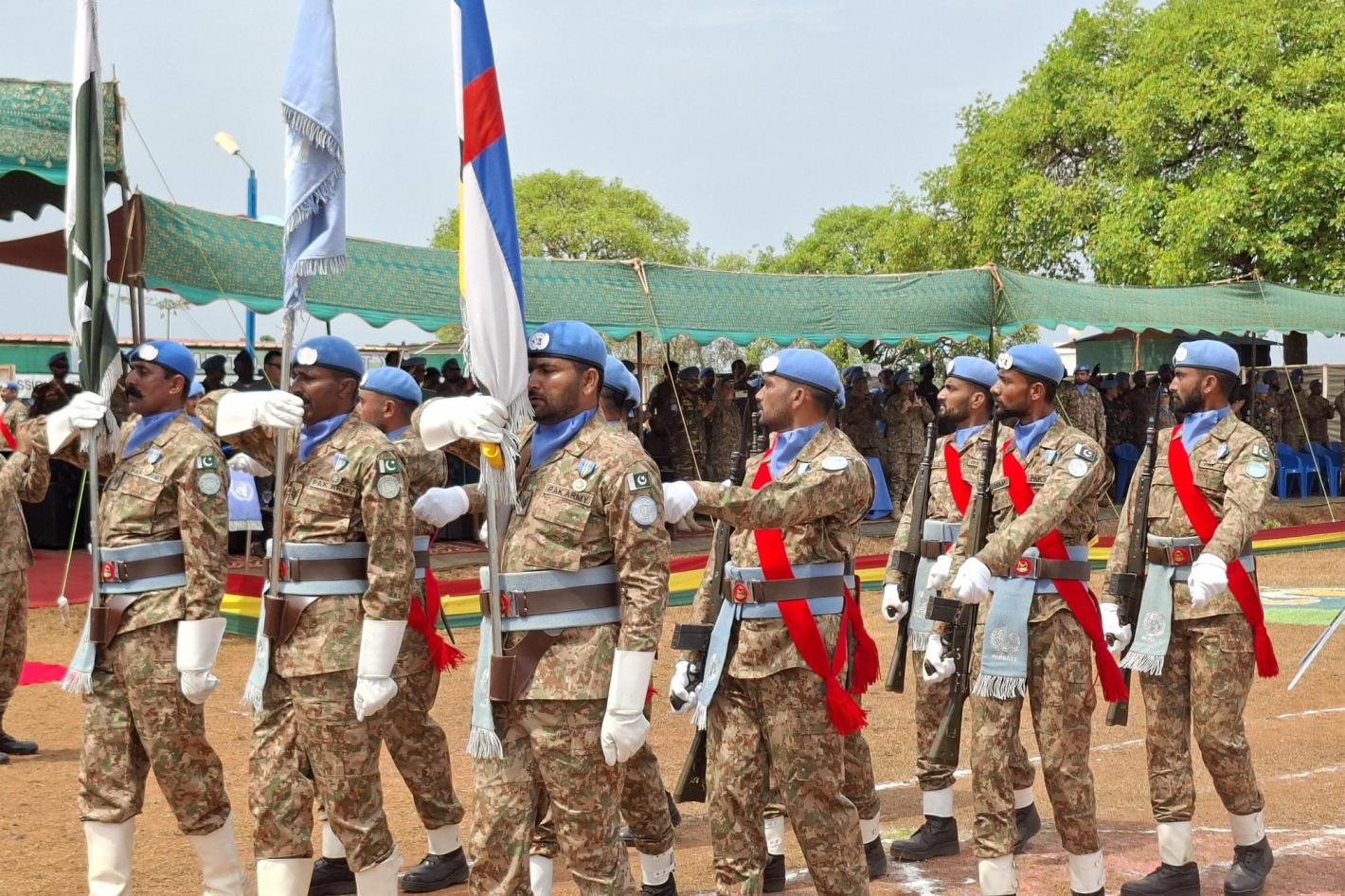On a tour of eight voter registration centres in Bangui on Saturday, 11 July 2020, the Deputy Special Representative of the Secretary-General of the United Nations (DSRSG) and Humanitarian Coordinator, Denise Brown, called for more women at the polls as preparations for elections in the Central African Republic (CAR) continue.
A week after the launch of voter registration for the CAR 2020/2021 election cycle, the National Elections Authority (ANE) had registered 53,923 voters – the majority of whom were men. Figures for the 30 June – 7 July 2020 registration period revealed that 71 percent of men and 29 percent of women had enrolled to take part in the upcoming elections.
“There is a need for mobilization and awareness raising among women. Let their names appear on the lists, so that they can vote and, for those who wish to do so, to stand as candidates,” said Denise Brown during the tour. She was accompanied by Arsène Gbaguidi, the Director of MINUSCA’ s Electoral Division, which is providing technical, logistical and security support to the electoral process.
The initial voter registration tally is a reminder of the chronic deficit with regard to women involvement in electoral processes in the Central African Republic. According to the MINUSCA Electoral Division, only 10 percent of women stood as candidates in the last legislative elections. Women participation is especially important at the present time as October this year marks the 20th anniversary of UN Security Council Resolution 1325 which established the Women, Peace and Security (WPS) mandate that recognizes the indispensability of women’s participation for sustainable peace and political processes.
Despite the overall slow start with regard to voter registration numbers across the country, DSRG Brown welcomed the gradual increase in women representation: “The involvement of women in the electoral process is very important for the development of the country and for the well-being of the women and girls of tomorrow,” she noted.
Significantly, the coronavirus pandemic has necessitated the application of preventive measures to halt the spread of the virus at voter registration centers: “At most of the sites, hand washing points are available and masks are worn... they are doing everything possible to ensure that this stage of the electoral process is respected, despite the difficulties posed by Covid-19,” said Denise Brown, visibly satisfied with the compliance of the electoral officers with the government measures in this regard.
The Mission has been engaged in efforts to boost women’s participation in the planned elections. Since late last year, MINUSCA and UNDP’s support for women's involvement in the electoral process in CAR has included support in advocacy for the adoption of the new Electoral Code favourable to gender equality; awareness raising for leaders of political parties on the provisions of the new Electoral Code and advocacy in favour of better representation of women within their ranks; an Open Day on political parties for 300 women leaders to encourage women candidacy – more than 70 potential women candidates for the legislative elections were registered through the joint MINUSCA/UNDP initiative organized in December 2019.






